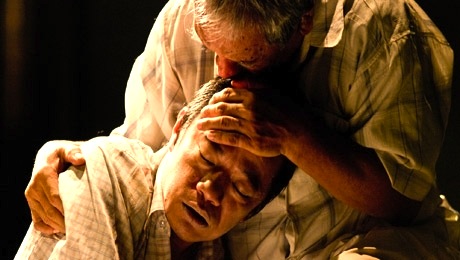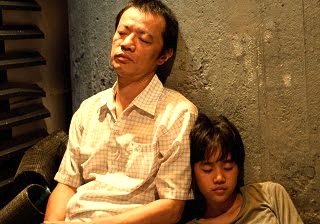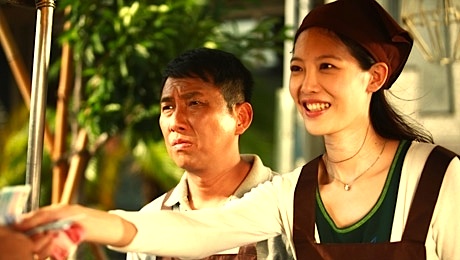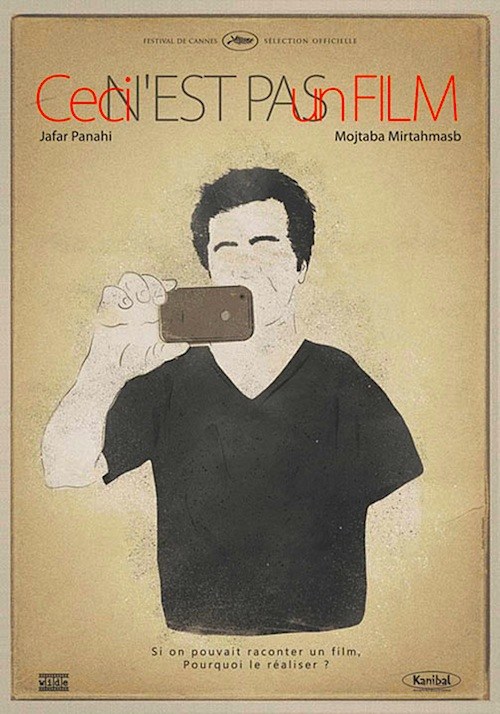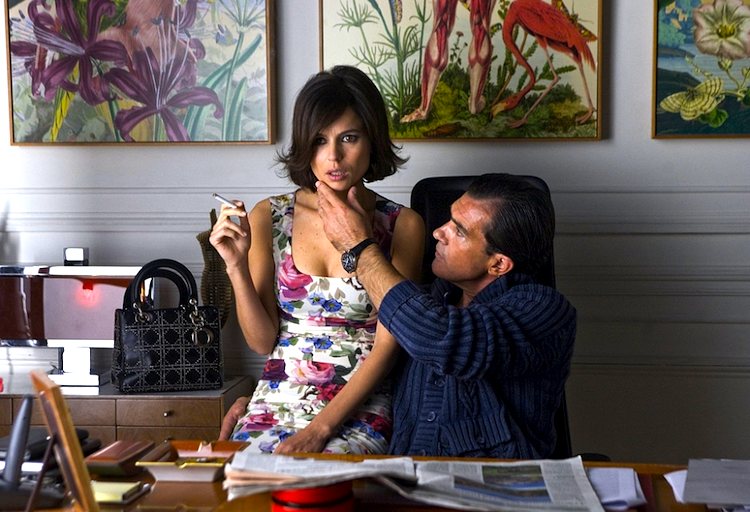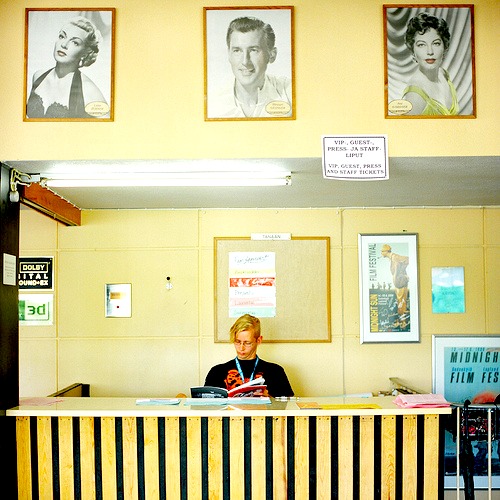
By Joe Bendel. Sir Laurence Olivier and Marilyn Monroe were about to achieve career highpoints in John Osborne’s The Entertainer and Billy Wilder’s Some Like it Hot, respectively. However, the chemistry was somewhat lacking in their one and only film together, The Prince and the Showgirl, tepidly received by critics and audiences alike in 1957. The behind-the-scenes story of their rocky shoot is told from the perspective of a smitten production assistant in Simon Curtis’s My Week with Marilyn (trailer here), the centerpiece selection of the 49th New York Film Festival.
Though to-the-manor-born, young Colin Clark wants to make his own way in the world working in motion pictures. Refusing to take no for an answer, Clark parlays a dubious introduction into a gofer job with Olivier’s production company. Recently knighted, the great actor is planning to direct the American bombshell in a light comedic role his wife, Vivien Leigh, originated on-stage. Unfortunately, when Monroe shows up with full entourage in tow, it is quickly apparent that she’s deeply enthralled by the method school of acting, dubious claptrap Sir Laurence has little patience for.
Despite beginning a healthy romance with Lucy, a wardrobe assistant arguably as attractive as the childlike and frequently doped-up Monroe, Clark falls hard for the famous sex symbol. While not exactly mutual, Monroe starts to rely on the solicitous young man’s emotional support. It all leads to much gossip and quite a bit of ill will on the set.
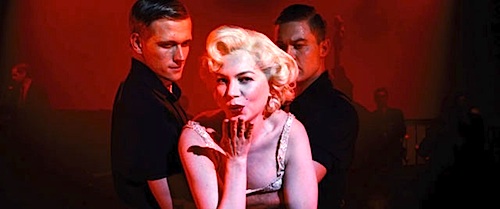
If Marilyn Monroe truly was a ragingly insecure woman who lived in a pronounced state of arrested development, then Michelle Williams plays her quite well indeed. Though she is already being positioned as an Oscar contender, her Monroe seems to be a blank slate on which the other characters project their desires. Was that all there really was to her? If so, how very sad.
In welcomed contrast, the British ensemble cast, including the likes of Dame Judi Dench, Michael “Foyle” Kitchen, and Julia Ormand (as Leigh, no small part to step into either), plays it to the hilt, bandying about witticisms as if they are in The Bad and the Beautiful, as rewritten by Noel Coward.
Yet, the casting of Kenneth Branagh as Olivier is particularly inspired. Not only does Branagh have the right “classically trained” presence and flair for razor-sharp dialogue, one can see parallels of his own career in that of Sir Laurence. Earning acclaim and the not infrequent comparison to Olivier with his early Shakespearean films, Branagh’s recent career had been somewhat checkered (including a critically drubbed remake of the Olivier vehicle, Sleuth), until scoring an unlikely comeback with Thor. Regardless, he plays the iconic thespian with genuine depth and charisma.
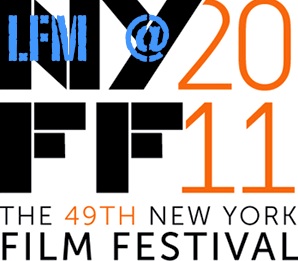 Granted, Week is based on his memoir, but the amount of screen time devoted to Eddie Redmayne’s Clark seems wildly misappropriated, considering the far more interesting actors and great larger than life figures of cinema history that are also assembled in the film. Frankly, his sad eyed, love-struck act quickly gets rather dull. Fortunately, the seasoned veterans like Branagh, Dench, and Sir Derek Jacobi can be relied upon to supply Week with periodic jolts of energy.
Granted, Week is based on his memoir, but the amount of screen time devoted to Eddie Redmayne’s Clark seems wildly misappropriated, considering the far more interesting actors and great larger than life figures of cinema history that are also assembled in the film. Frankly, his sad eyed, love-struck act quickly gets rather dull. Fortunately, the seasoned veterans like Branagh, Dench, and Sir Derek Jacobi can be relied upon to supply Week with periodic jolts of energy.
Curtis certainly keeps the film breezing along nicely, capturing a nice sense of the era along the way. Always pleasant viewing, Week features some wonderfully tasty supporting performances. It just seems to consistently focus on the two dullest people at a banquet of greatness. A case of a film whose sum of its parts is probably greater than its whole, Week screens again tonight (11/12) at the Walter Reade Theater as the Centerpiece of the 2011 NYFF. However, only standby tickets are available, so good luck.
Posted on October 12th, 2011 at 10:06am.
